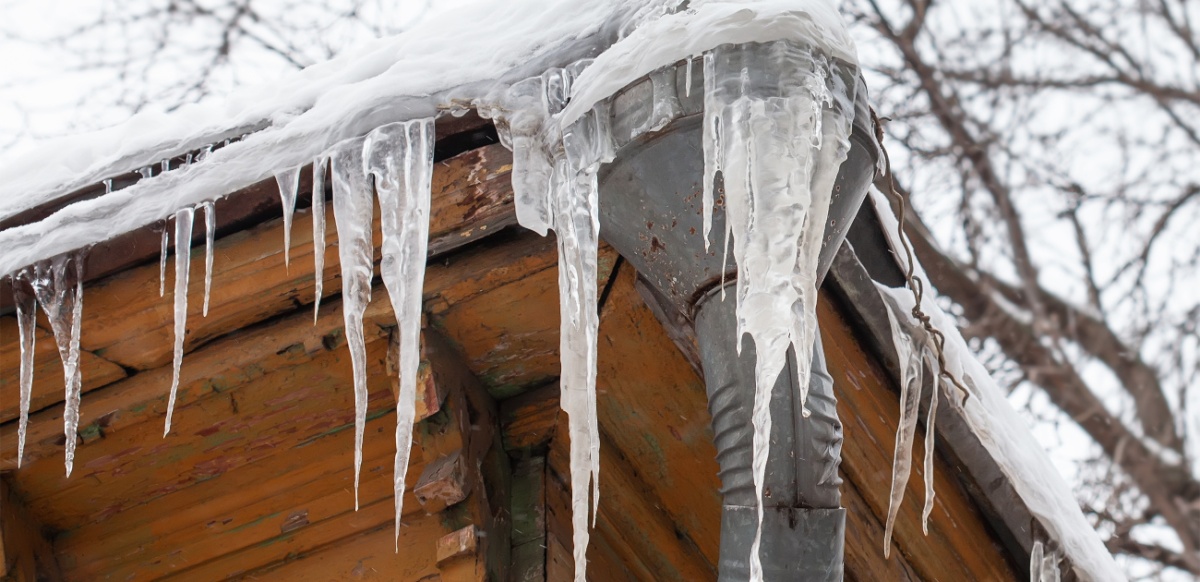We've come across the article on Helpful Tips to Prevent Frozen Pipes this Winter directly below on the internet and decided it made sense to quickly share it with you here.

Winter can damage your pipes, specifically by freezing pipelines. Below's how to stop it from taking place and what to do if it does.
Introduction
As temperature levels decline, the threat of icy pipes boosts, potentially resulting in costly fixings and water damage. Understanding just how to stop frozen pipelines is crucial for house owners in cold climates.
Prevention Tips
Protecting vulnerable pipelines
Wrap pipelines in insulation sleeves or use warmth tape to shield them from freezing temperatures. Focus on pipes in unheated or exterior locations of the home.
Heating strategies
Keep indoor areas effectively heated, specifically areas with pipes. Open up closet doors to enable cozy air to circulate around pipelines under sinks.
How to recognize icy pipes
Search for decreased water flow from taps, uncommon odors or sounds from pipelines, and noticeable frost on subjected pipes.
Long-Term Solutions
Structural adjustments
Consider rerouting pipes away from outside walls or unheated areas. Include extra insulation to attic rooms, cellars, and crawl spaces.
Updating insulation
Buy high-quality insulation for pipes, attics, and wall surfaces. Appropriate insulation aids maintain constant temperatures and reduces the danger of icy pipes.
Securing Outside Pipes
Garden tubes and outdoor taps
Disconnect and drain garden pipes before wintertime. Set up frost-proof spigots or cover exterior taps with insulated caps.
Recognizing Frozen Pipes
What creates pipes to freeze?
Pipelines ice up when revealed to temperatures below 32 ° F (0 ° C) for prolonged durations. As water inside the pipes ices up, it increases, putting pressure on the pipe walls and possibly creating them to rupture.
Risks and problems
Frozen pipes can result in water system disruptions, property damage, and costly fixings. Ruptured pipes can flood homes and cause extensive architectural damage.
Indicators of Frozen Water Lines
Determining frozen pipelines early can prevent them from bursting.
What to Do If Your Pipes Freeze
Immediate actions to take
If you think icy pipes, maintain faucets open to alleviate pressure as the ice melts. Utilize a hairdryer or towels soaked in hot water to thaw pipes slowly.
Verdict
Preventing icy pipelines needs aggressive steps and fast actions. By understanding the causes, indications, and preventive measures, house owners can shield their plumbing during winter.
Helpful Tips to Prevent Frozen Pipes this Winter
UNDERSTANDING THE BASICS: WHY PIPES FREEZE AND WHY IT’S A PROBLEM
Water freezing inside pipes is common during the winter months, but understanding why pipes freeze, and the potential problems it can cause is crucial in preventing such incidents. This section will delve into the basics of why pipes freeze and the associated problems that may arise.
THE SCIENCE BEHIND FROZEN PIPES
When water reaches freezing temperatures, it undergoes a physical transformation and solidifies into ice. This expansion of water as it freezes is the primary reason pipes can burst. As the water inside the pipe freezes, it expands, creating immense pressure on the walls. If the pressure becomes too great, the pipe can crack or rupture, leading to leaks and water damage.
FACTORS THAT CONTRIBUTE TO PIPE FREEZING
Low Temperatures: Extremely cold weather, especially below freezing, increases the risk of pipes freezing. Uninsulated or Poorly Insulated Pipes: Pipes located in unheated areas, such as basements, crawl spaces, or attics, are more prone to freezing. Insufficient insulation or lack of insulation altogether exacerbates the problem. Exterior Wall Exposure: Pipes running along exterior walls are susceptible to freezing as they encounter colder temperatures outside. Lack of Heating or Temperature Regulation: Inadequate heating or inconsistent temperature control in your home can contribute to frozen pipes. PROBLEMS CAUSED BY FROZEN PIPES
- Pipe Bursting: As mentioned earlier, the expansion of water as it freezes can cause pipes to burst, resulting in significant water damage.
- Water Damage: When pipes burst, it can lead to flooding and water damage to your property, including walls, ceilings, flooring, and personal belongings.
- Structural Damage: Prolonged exposure to water from burst pipes can compromise the structural integrity of your home, leading to costly repairs.
- Mold and Mildew Growth: Excess moisture from water damage can create a favorable environment for mold and mildew growth, posing health risks to occupants.
- Disrupted Water Supply: Frozen pipes can also result in a complete or partial loss of water supply until the issue is resolved.
WHY CERTAIN PIPES ARE MORE PRONE TO FREEZING
- Location: Pipes located in unheated or poorly insulated areas, such as basements, crawl spaces, attics, or exterior walls, are at higher risk of freezing.
- Exterior Pipes: Outdoor pipes, such as those used for irrigation or exposed plumbing, are particularly vulnerable to freezing as they are directly exposed to the elements.
- Supply Lines: Pipes that carry water from the main water supply into your home, including the main water line, are critical to protect as freezing in these lines can affect your entire plumbing system.
- Underground Pipes: Pipes buried underground, such as those connected to sprinkler systems or outdoor faucets, can be susceptible to freezing if not properly insulated.
https://busybusy.com/blog/helpful-tips-to-prevent-frozen-pipes-this-winter/

Do you like reading about How To Avoid Freezing Pipes? Put a remark directly below. We would be happy to know your suggestions about this blog entry. In hopes that you come back again in the future. Are you aware of another person who is enthusiastic about the subject? Please feel free to promote it. Thanks a lot for your time. Please visit our site back soon.
Get Offer